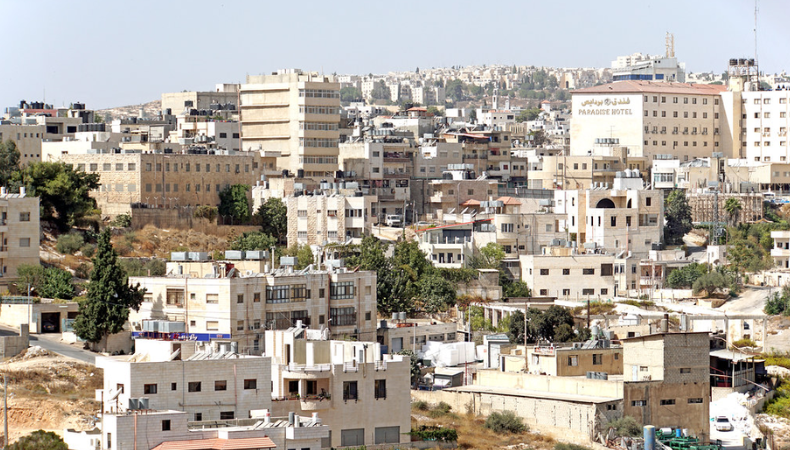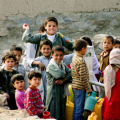Palestinians and the UN Criticize Largest West Bank Land Seizure in Decades

Strong condemnation against what an anti-settlement organization reports as Israel’s biggest land theft in the occupied West Bank over three decades has come from Palestinians and the United Nations. Declared “state property” in June, this major appropriation covers around 12.7 square kilometers (4.9 square miles) of the Jordan Valley. This action deprives Palestinians of private ownership and use rights in the area, claims Peace Now, an anti-settlement group.
Strategic Connotations of the Seizure
According to Peace Now, this land declaration creates “territorial continuity” between Israeli colonies in a crucial corridor running alongside Jordan. This action is seen as Israel’s strategic attempt to unite authority over the territory, therefore complicating the chances for a contiguous Palestinian state. Previously identified as a nature reserve and Israeli military “fire area,” the seized land is now likely to enable more growth of settlement.
Reaction of Palestinians and Internationally
From Palestinian officials and the world community, the seizure has caused notable reaction. The act was denounced by a Palestinian official as a purposeful attempt to deny Palestinians their rights to the land and so dispossess them. With spokesman Stephane Dujarric characterizing the action as “a step in the wrong direction” for the two-state solution to the Israeli-Palestinian conflict, the UN has equally attacked the measure. This point of view is in line with most of the world’s population, who regards Israeli colonies in the West Bank as unlawful under international law—a stance Israel challenges.
Help from Israeli Leadership
On the other hand, Israeli Finance Minister Bezalel Smotrich, a far-right settler with great influence over settlement policies inside Israel’s coalition government, approved the announcement in clear contrast. Prominent supporter of a “Greater Israel” including the West Bank, Smotrich hailed the action as a means of stopping the birth of a Palestinian state. Clearly, settlement expansion takes top importance in line with his larger political objective.
Current Developments and Historical Context
Israel has built over 160 settlements in the West Bank and East Jerusalem since the 1967 Middle East war, sheltering almost 700,000 Jews. Though Israel disagrees with this assessment, the international community generally sees these communities as illegal under international law. Approved by Israel’s Civil Administration and publicly revealed in July, the latest land confiscation encompasses a territory north of the Yafit settlement. Originally largely designated as a military “fire area” or nature reserve, this area’s designation as state land generated much debate.
Warning from Peace Now
Peace Now notes that 2024 has witnessed an unheard-of degree of official land declarations and has set alarms regarding the recent property seizure. With 23.7 square kilometers taken overall since the start of the year, the monitoring group has charged Smotrich and Prime Minister Benjamin Netanyahu of giving settlement building top priority over addressing Israel’s political crisis or bringing the situation in Gaza under control. These acts have been characterized by Peace Now as a deliberate attempt by Israeli government to support a tiny group of settlers over more general interests of Israel and the search of peace.
Standpoint of UN and Palestinian Authority
Emphasizing the need of a negotiated two-state solution, UN spokesman Stephane Dujarric denounced the land grab as a major obstacle. Head of the Wall and Settlement Resistance Commission for the Palestinian Authority Muayyad Shaaban said the action was part of a larger strategy meant to dominate the eastern section of the West Bank. This point of view emphasizes the strategic relevance of the taken land and its consequences for Palestinian statehood going forward.
Israeli Plans of Expansion
According to Israeli media, Smotrich commemorated the land declaration in line with plans to build 5,300 additional settler houses on the West Bank. The security cabinet also voted to retrospectively approve five colony outposts previously constructed without official government permission. Smotrich described in a speech to his Religious Zionism party a sequence of actions Peace Now cautioned may result in “de facto annexation” of the West Bank. These actions comprise shifting military to civilian authorities’ supervision of settlements, building a “legalization bypass route” for settlement outposts, increasing authorization of agricultural outposts, and suppressing illegal Palestinian building.
Security and Economic Issues
Smotrich allegedly agreed to unfreeze tax revenues withheld from the Palestinian Authority and prolong a waiver protecting Israeli banks working with the settlement outposts in return for the retroactive authorization of the settlement. Warning that more economic suffering for Palestinians would result in more bloodshed in the West Bank, the United States had pushed Israel to deliver the money. This economic factor emphasizes the wider consequences of the settlement policies and their possibility to aggravate conflicts.
Keep on Reading
Continual Conflict and Death Count
Initiated by Hamas’s lethal onslaught on southern Israel on October 7, the Gaza conflict has claimed over 530 Palestinians and 14 Israelis dead in the area since its beginning. Plans for settlement growth and recent land seizure are expected to aggravate already high levels of conflict, therefore distancing the possibility of a peaceful solution. The world community keeps close attention since these events will affect regional stability as well as the direction of Israeli-Palestinian relations.
Result
Apart from depriving Palestinians of their territory, the biggest land confiscation in the West Bank in more than three decades has sparked a heated argument over the direction of the Israeli-Palestinian conflict. The road to peace becomes increasingly difficult given the whole community’s general condemnation of the action and Israeli leadership advancing plans of expansion. Though the UN and Palestinian leaders stress the need of a two-state solution, the latest events draw attention to the still major challenges. The globe observes as the situation changes to see whether diplomacy and communication may overcome strife and division.








